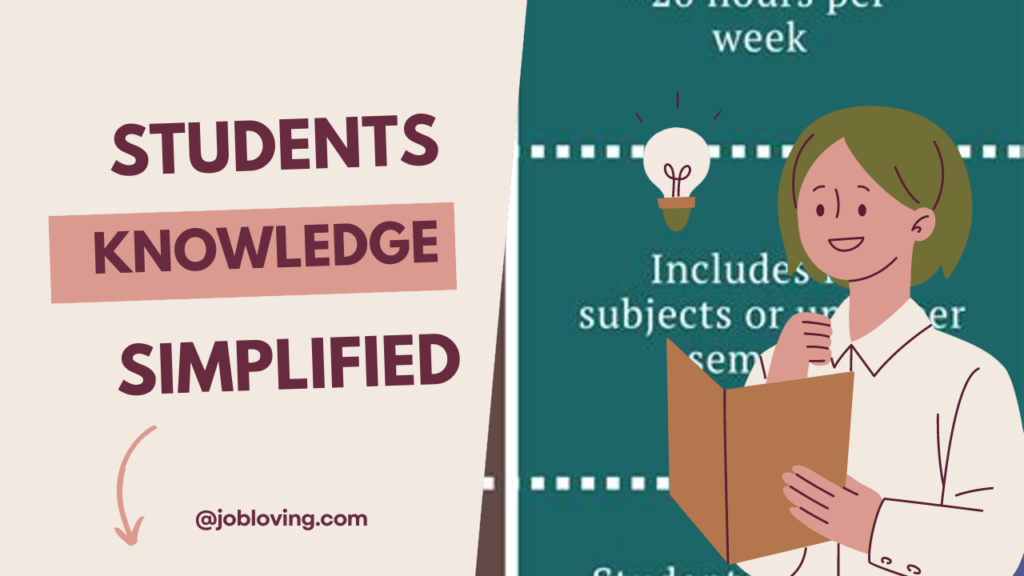As you enter the bustling world of college life, one burning question might pop up: “Should I work full-time or part-time while I juggle classes, social life, and a mountain of textbooks?” It feels like a million-dollar question, and spoiler alert: the answer isn’t black and white. Indeed, a little more than just dollars and sense comes into play here.
First, let’s dive into the full-time grind. Sure, the allure of a robust paycheck beckons many students to clock in those long hours. But embrace this reality: working more than 30 hours a week during college often turns you into a sleep-deprived, stressed-out zombie. Full-time students committing to a full-time job can easily spiral into burnout, leaving their GPA suffering—like, “did I even pass that exam?” level of suffering. Not to mention, when you add coursework into the mix, students can find themselves engulfed in epic 85-hour weeks that’d make anyone reconsider their life choices. In fact, recent stats showed that many students juggling a full work schedule often find themselves facing longer graduation timelines and increased debt. Talk about a college horror story!
On the flip side, let’s talk about the sweet spot of working part-time. Holding down a job for around 9-12 hours a week helps students cultivate essential time management skills while keeping their heads above water academically. It’s like juggling flaming torches—doable, yet thrilling! By embracing part-time work, students can maintain a greater focus on their studies, resulting in quicker graduation rates and, generally speaking, lower student debt. It’s a win-win! Plus, who wouldn’t want to enjoy a college experience rich with social events, networking opportunities, and maybe the occasional study group at the coffee shop?
In 2020, research unveiled that about 41.5% of full-time students were employed , but a staggering 82% of part-time students worked. This suggests that generally, flexible study schedules allow for a little wiggle room, providing part-time students the capacity to balance their academic and life commitments without losing their sanity. If juggling classes and a job feels like tightrope walking, remember: part-time can allow for a much smoother dance of study and work.
Now, don’t forget—financial aid often only covers part of your educational costs, leading many students to scramble for extra cash. Working part-time creates an avenue to ease those financial burdens while allowing students to enjoy a richer college experience. With a more manageable schedule, students can often afford to focus greater attention on their coursework, leading to better job prospects post-graduation. Because in the grand scheme of life, being a student is not just its own job; it requires devotion and time—a part-time pursuit, if you will.
So is working full-time or part-time as a college student the better option? In most typical circumstances, it’s clear that part-time work aligns better with academic success and a fulfilling college experience. Remember, however, that everyone’s journey looks different. Find your balance, schedule wisely, and don’t forget to savor those late-night study sessions over pizza with friends. Your academic journey is a significant up-front investment with long-term payoffs; you’d want to get the best out of it!
How does working full-time while studying impact a student’s academic performance and well-being?
Working full-time while studying often leads to burnout, which negatively affects both academic performance and overall well-being. The overwhelming demands of balancing a full-time job with a full course load can result in increased stress and decreased focus on studies.
What are the benefits of working part-time as a college student?
Working part-time while studying can enhance time management skills and support academic success. Students typically manage to graduate on time and with less debt when they work around 9–12 hours weekly, allowing them to maintain a balance between work and their studies.
How does the choice between full-time and part-time work influence graduation timelines and financial outcomes?
Students who prioritize their studies and work part-time often graduate faster and experience less financial strain. In contrast, those who work full-time may take longer to graduate, leading to increased educational costs and potential debt accumulation.
What role does societal perception play in the balance between work and education for college students?
The societal view that equates work solely with paid employment limits the recognition of academic efforts as valuable labor. This perception can influence students’ choices, often leading them to prioritize immediate financial gain over their educational commitments, which may hinder long-term career advancement.

